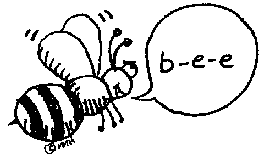Works and Days

Take nothing to eat or to wash with from uncharmed pots, for in them there is mischief. - v. 748.
Once upon a time (in the 7th century BC) there were two brothers: one industrious and intelligent (to the point that he learned to compose narrative poems in epic hexameter when there was nothing to do in the field), but the other lazy and silly. The latter, surprisingly, managed to bribe the local judges and was given the vast majority of land at the cost of his brother's part - only to waste it hopelessly because of his laziness and incompetence. On this occasion his hard-working sibling wrote for him a long advice in the form of a poem, containing some moral precepts, two or three mythical parables, and quite a lot of hints concerning the art of husbandry. This poem is now known as Works and Days, and whole generations of classical scholars cannot agree whether lazy Perses actually existed or was it only a literary device of Hesiod to show the disastrous effects of foolishness. For the purpose of the list of tropes below let us assume that the former option is true.
Works and Days includes:
- Quite a few Aesops:
- Cheaters Never Prosper: And the best way not to be a cheater is to work hard and mind one's own business.
- Country Mouse: It's better to stay in one's native village and be content with what possibilities it offers than to become a warrior or a sailor and risk Dangerous Adventures.
- Curiosity Killed the Cast: Curiously, Pandora is not explicitly told to have opened the jar out of curiosity - but Hesiod strongly discourages Perses to check what is behind his native land.
- Love Makes You Dumb: Hesiod warns Perses not to fall in love in his wife, whoever she'll be, as this may lead to trusting her, which is bound to be disastrous.
- Might Makes Right: Hesiod's story about hawk and nightingale serves as a disillusionment.
- Artifact of Doom: Pandora's jar.
- Big Brother Mentor: Literally.
- Bolt of Divine Retribution: Very near the beginning, when the author praises Zeus as a powerful and just divine ruler.
- He-Man Woman Hater: One may wonder whether Hesiod had met someone fitting the legendary portrayal of Xanthippe, as more than once he advises Perses not to trust women, no matter what. He also tells him to marry as young a girl as possible in order to bring her up according to his wishes, and to expel the inefficient pregnant servants at the most busy time of the year.
- Land Poor: This was, presumably, the situation of both Hesiod and Perses.
- Narrative Poem: And a one really old.
- Nostalgia Ain't Like It Used to Be: In earlier ages, everything was better - men were healthier and happier, gods were nicer to men, the food was better and the grass was greener. The ages enumerated in the text are:
- Golden Age, when Cronos was king.
- The Silver Age of Comic Books (only without comic books).
- The Bronze Age of Comic Books (again, no comic books involved).
- The Time of Myths.
- Iron Age. This is where history begins.
- Religion Is Magic: A considerable part of the text is a list of good and bad days for doing particular things.
- Robot Girl: Pandora.
- Sealed Evil in a Can: An Ur Example - the story of Pandora and her jar.
- Self-Made Man: This is the ideal which Perses should imitate, according to Hesiod.
- Sibling Rivalry: So epic it would be Cain and Abel, if not for the fact that Perses is more stupid than really evil.
- Sibling Yin-Yang: The two Strifes. One of them (the Yang one) appears in the sister-poem of Works and Days, describing in detail how blue her blood was; this supports Hesiod's stance that, actually, the evil goddess Strife is accompanied by the much nicer Ambition. This is the same trick that Plato used in Symposium to explain the difference between love and sex. (Perses and Hesiod themselves can also be seen as fitting the pattern.)